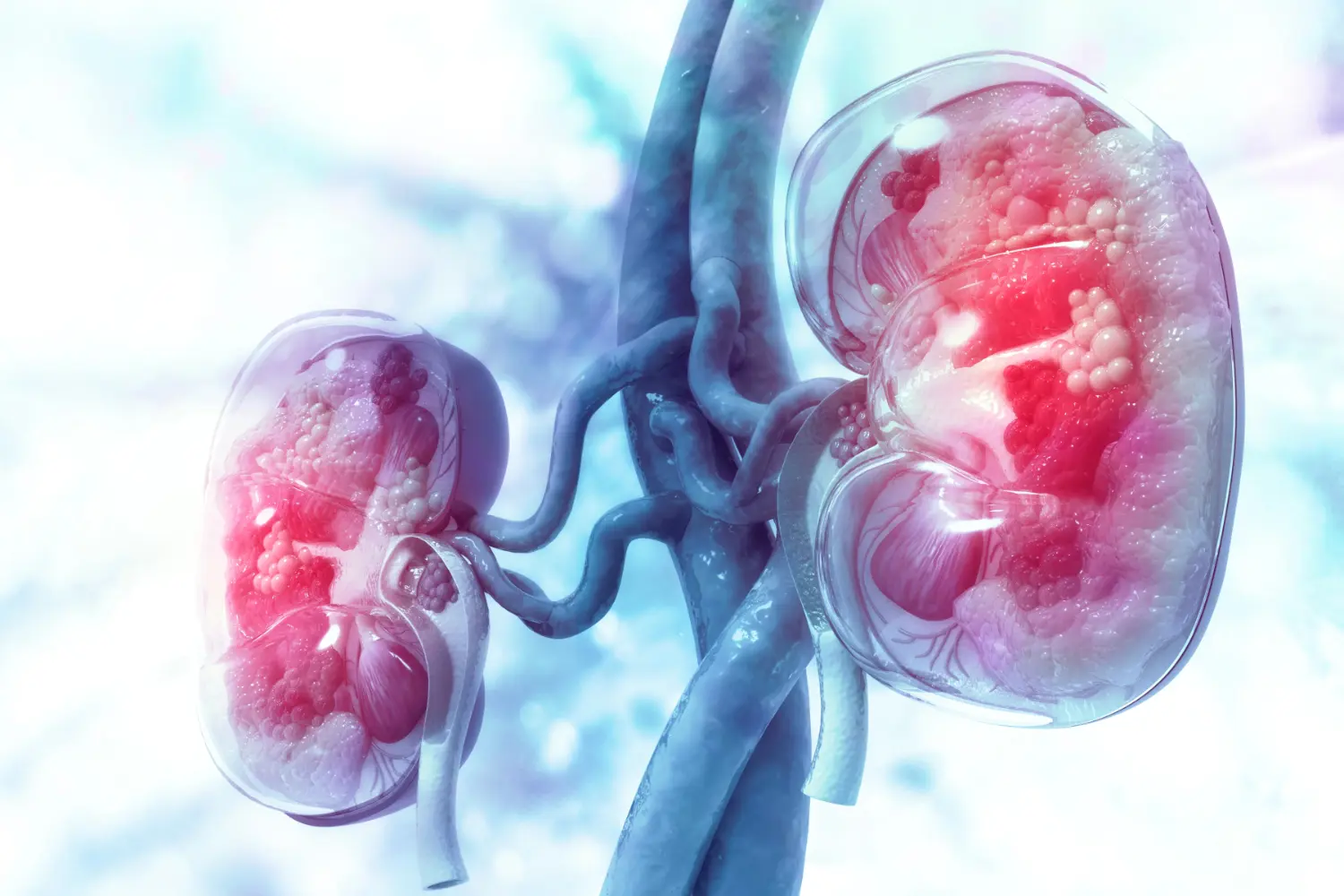
Menopause brings significant hormonal shifts, and one area often overlooked is its impact on kidney health. As estrogen levels decline, the risk of kidney-related issues, including high blood pressure and reduced filtration efficiency, increases.
If you’re navigating menopause, maintaining kidney health is essential for overall well-being. By adopting the right lifestyle, dietary habits, and holistic approaches, you can protect your kidneys and reduce potential complications.
Menopause triggers a cascade of hormonal changes that can directly impact kidney function. One of the primary concerns is the decline in estrogen, a hormone that plays a protective role in maintaining healthy blood vessels and kidney filtration. As estrogen levels drop, the risk of high blood pressure, diabetes, and chronic kidney disease increases.
Studies have shown that postmenopausal women are more likely to experience reduced kidney function due to increased inflammation and oxidative stress. Additionally, changes in metabolism and fluid balance can put extra strain on the kidneys, making them work harder to filter waste and maintain electrolyte balance.
Early signs of kidney strain during menopause may include persistent fatigue, swelling in the legs or hands, changes in urination patterns, and high blood pressure. Being aware of these symptoms and prioritizing kidney health during menopause can help prevent long-term complications.
What you eat plays a crucial role in protecting kidney health during menopause. A balanced diet can reduce inflammation, support optimal kidney function, and prevent common issues like high blood pressure and kidney stones. Here’s how to adjust your diet for better kidney health:
Menopause can lead to changes in fluid balance, making proper hydration even more important. Drinking enough water helps flush out toxins and reduces the risk of kidney stones. Aim for at least 8–10 glasses of water per day, but adjust based on your activity level and climate.
Antioxidant-rich fruits and vegetables: Berries, leafy greens, bell peppers, and apples help reduce oxidative stress on the kidneys.
Healthy fats: Omega-3s from sources like salmon, flaxseeds, and walnuts support kidney function.
Potassium-balanced foods: While potassium is essential, too much can strain the kidneys. Stick to moderate sources like sweet potatoes and beans instead of high-potassium foods like bananas and oranges.
High sodium intake can elevate blood pressure and contribute to kidney damage. Reduce processed foods, fast food, and excessive salt in home-cooked meals. Opt for herbs and spices instead of salt for seasoning.
Excessive protein—especially from red meat and processed meats—can strain the kidneys. If you eat animal protein, focus on lean sources like fish and poultry, and incorporate more plant-based proteins like lentils, tofu, and quinoa.

Beyond diet, lifestyle choices play a crucial role in maintaining kidney health during menopause. As hormone levels fluctuate, adopting healthier habits can help reduce stress on the kidneys and support overall well-being.
Regular exercise helps regulate blood pressure, improve circulation, and reduce inflammation—all of which benefit kidney function. Low-impact activities such as walking, swimming, and yoga are excellent choices for menopausal women. Aim for at least 30 minutes of movement most days of the week.
Chronic stress leads to increased cortisol levels, which can contribute to high blood pressure and kidney strain. Stress management techniques like deep breathing, meditation, and progressive muscle relaxation can help regulate stress hormones and support kidney health.
Poor sleep can negatively impact kidney function by disrupting the body’s detoxification process. Aim for 7–9 hours of restful sleep each night. Establish a bedtime routine, limit screen time before bed, and avoid caffeine in the evening to improve sleep quality.
Weight gain is common during menopause and can increase the risk of conditions like diabetes and hypertension, which stress the kidneys. A balanced diet combined with regular physical activity can help manage weight and reduce kidney-related risks.
In addition to diet and lifestyle changes, certain supplements and natural remedies can further support kidney health during menopause. These options help reduce inflammation, improve circulation, and enhance kidney function naturally.
A healthy gut microbiome contributes to kidney health by reducing inflammation and improving waste elimination. Probiotics, fermented foods (like yogurt, kefir, and sauerkraut), and prebiotic-rich foods (like garlic and onions) can support gut health and indirectly benefit kidney function.
While lifestyle and dietary changes can significantly support kidney health during menopause, it’s essential to recognize when professional medical guidance is needed. Menopausal changes can sometimes mask early signs of kidney issues, making regular monitoring crucial.
If you experience any of the following symptoms, consult a healthcare provider:
Routine lab tests can help detect early kidney issues before they progress. Your doctor may recommend:
If you have pre-existing conditions like diabetes, high blood pressure, or a history of kidney disease, it’s important to work closely with your doctor to create a kidney-friendly health plan. They can guide you on medications, lifestyle adjustments, and further screenings.
By staying proactive about kidney health and seeking medical advice when needed, you can prevent potential complications and maintain optimal function through menopause and beyond.
Maintaining kidney health during menopause requires a proactive approach that includes dietary changes, lifestyle adjustments, and the right supplements. As estrogen levels decline, the kidneys can become more vulnerable to stress, making it essential to prioritize hydration, nutrient-dense foods, and holistic remedies.
Key Takeaways:
By implementing these strategies and monitoring your kidney health regularly, you can reduce the risk of complications and support your overall well-being during menopause. If you’re looking for more ways to enhance your health during menopause, consider exploring additional resources on hormonal balance and overall wellness.
Related Articles










* These statements have not been evaluated by the Food and Drug Administration. This product is not intended to diagnose, treat, cure or prevent any disease.